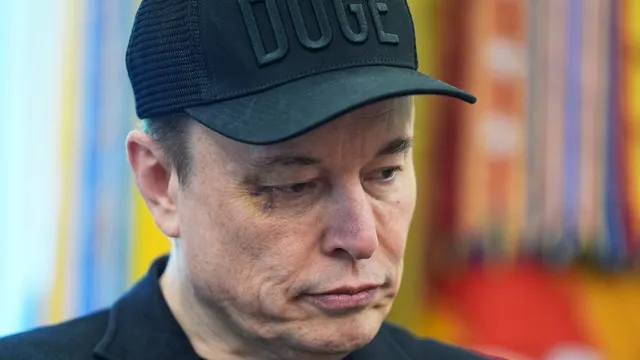
Elon Musk denies allegations of drug use amid White House departure
2025-06-02 00:09- Elon Musk faced a question about alleged drug use during a farewell event with President Trump.
- He denied the claims made in a New York Times article, stating he is not currently using drugs.
- The allegations and his attempts to manage the situation have led to increased scrutiny regarding his public image.
Express your sentiment!
Insights
In a recent event in the United States, Elon Musk faced questions regarding allegations about his drug use during the 2024 campaign trail while serving in the Trump Administration. Reports from the New York Times claimed that Musk used ketamine extensively and had developed health issues related to the substance. The article also mentioned that he allegedly consumed ecstasy and mushrooms, and was even seen traveling with a pill box. Musk's tenure as a "special government employee" was marked by his efforts to decrease waste and improve efficiency in federal spending. During a farewell appearance alongside President Donald Trump, Musk attempted to dodge inquiries regarding these reports, leading to public speculation about his behavior. His response was brief, insisting that he was not currently using drugs. Musk has previously discussed his use of ketamine in the past for mental health reasons but emphasized that it has not been part of his routine for quite some time. The claims about Musk's drug use drew considerable attention, especially given the context of his recent visible injuries, including a noticeable black eye. Musk suggested that this injury was a result of playful interaction with his young son. This incident, coupled with the drug allegations, has fueled public curiosity about his mental and physical well-being. A White House spokesman emphasized Musk's contributions to the federal government but notably avoided addressing the drug allegations in his comments. As the situation continues to develop, the relationship between Musk and Trump appears stable, with Trump praising Musk as a
Contexts
The impact of drug use on public figures is a crucial area of research that reveals how substance abuse not only affects the individuals involved but also reverberates throughout society. Public figures, including politicians, celebrities, and athletes, wield significant influence over their followers and fans. When they engage in drug use, it can perpetuate harmful stereotypes, normalize substance abuse, and ultimately impact public health. The behavior of these individuals often sets a precedent, and their struggles with addiction can either foster understanding and support for those facing similar challenges or contribute to stigma and alienation. Thus, the discussion surrounding drug use among public figures calls for a balanced consideration of personal responsibility and societal implications. Several high-profile cases illustrate the multifaceted effects of drug use among public figures. For instance, the struggles and eventual demise of celebrities due to substance abuse have highlighted the frailty of life in the public eye and sparked conversations about mental health, addiction, and recovery. These narratives often elicit public sympathy, raising awareness and prompting discussions about the need for treatment and rehabilitation instead of punitive measures. Moreover, media coverage of such cases can influence public perceptions and reinforce the critical need for empathy towards individuals battling addiction. This protective societal response has been instrumental in shaping contemporary drug policy, leading to more interventionist approaches rather than solely punitive ones. In the realm of politics, drug use by public figures can have significant implications for policy and governance. Elected officials who struggle with substance abuse may find their credibility questioned, impacting their effectiveness and the public's trust in their leadership. The repercussions can extend to broader political and social policies, as lawmakers who have experienced addiction may advocate for stronger support systems, prevention programs, and harm reduction strategies. Conversely, scandals related to drug use can derail careers and prompt significant shifts in legislative priorities, emphasizing the need for accountability and transparency among those in power. Furthermore, the portrayal of drug use among public figures in popular culture can both reflect and shape societal attitudes toward substances. Television shows, movies, and music often glamorize drug use, leading to a cycle of normalization that can influence young audiences. As a result, public figures bear a responsibility for the messages they disseminate and their potential impact on societal behaviors. Understanding the consequences of drug use on public figures is vital for informing policy, fostering open conversations about addiction, and promoting healthier lifestyles among the public. Public discourse surrounding these issues should focus not only on the stigma associated with drug use but also on the importance of compassionate support, rehabilitation opportunities, and comprehensive education.